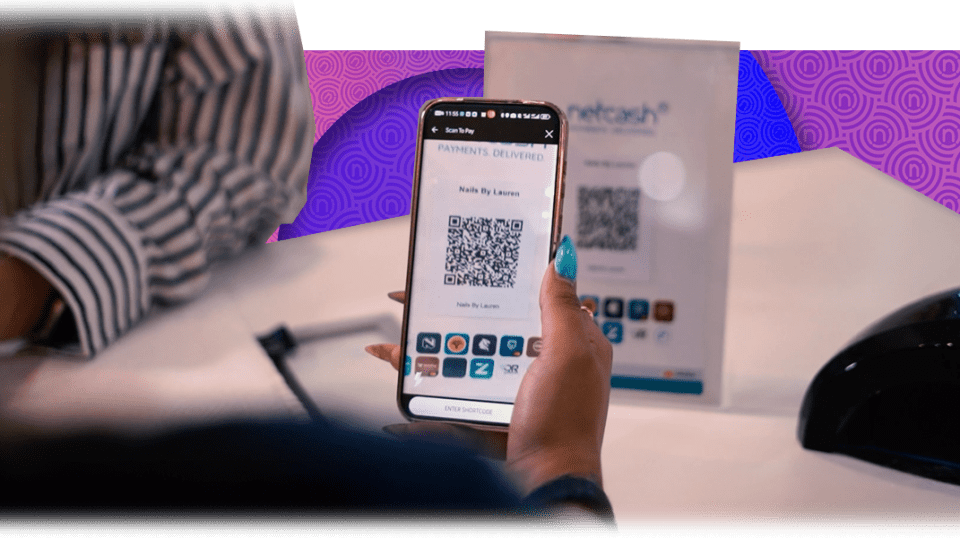
Free up time & improve your cash flow with automated invoicing
August 22, 2024
Best online payment methods in South Africa (2024)
August 23, 2024A debit order is an efficient way to collect recurring payments where revenue is dependent on customers making monthly payments. Instead of manually doing so, these are automated, taking the effort out of paying.
Netcash acts as a transparent middleman between your company and the individuals from whom you wish to collect recurring payments for services or products. Whether you’re a new up-and-coming business or an established entity, a well-regulated debit order service provider is essential to reduce customers’ debit order disputes.
Are you unsure how debit order disputes work and what exactly you’re entitled to when this issue arises? We’ll guide you through the nitty-gritty of this recurring payment commitment and the inner workings of the debit order dispute.

What is a debit order dispute?
Before diving into the meaning of a debit order dispute, it’s crucial to understand what qualifies as one.
A debit order is an agreed-upon and authorised request for a specified amount of money to be withdrawn from your customer’s bank account; commonly, a monthly payment that seldom doesn’t change outside of annual price increases.
This agreement can be a contract, but the individual’s bank will need a mandate. Although the bounds of these mandates can differ, they are usually determined by frequency and amount.
If a customer encounters a deducted amount that is outside the bounds of your agreement with the third party, they can contest and request a debit order dispute. If the bank approves a debit order dispute, your company is liable to pay the customer back the amount disputed.
The importance of following PASA rules
This is why following Payment Association of South Africa (PASA) debit order rules is essential to protect your company from disputes and ensure compliance. PASA is generally seen as the debit order law South Africa follows and is the payment system management body.
Netcash has various security measures in place to minimise the risk of debit order fraud. If the customer chooses to report a debit order dispute at the bank, the debit order will be investigated to ensure its validity.
This is where your company will be requested to provide evidence of the debit order mandate to be absolved from the specified dispute. If you have the necessary paperwork and information to supply the bank, you’ll more than likely not be liable for any payouts to customers. This refers to documents such as valid voice, electronic, or paper mandates.
Can a customer cancel their debit order agreement?
As a company or third-party entity, you are responsible for adhering to the guidelines and terms of conditions provided.
Be sure, in your customer’s debit order agreement or mandate, that you have the right to cancel their financial responsibility at any time. In that case, you’ll have the legal right to proceed with their debit order cancellation.
If a customer has requested to cancel the debit order in writing and is in compliance with your debit order contract requirements, it’s in your best interest to stop the recurring transaction.
Otherwise, customers may involve their given bank or Netcash in order to absolve them from their debit order, which provides a bad reputation for your business.
Would you like to know more about our Debit Order service?
What does a debit order dispute mean for your company?
Building trust with customers and being respected as a reputable and ethical entity is crucial when running a business. A requested debit order dispute is much more than a simple refund, and it can involve a wide variety of factors that can negatively affect your company.
The PASA has made strides to incorporate a hefty penalty for companies with evidence of abusing the debit order system. This penalty has been stated to be R1000 per incident if the payment has been classified as unauthorised without the customer’s consent.
Other negative impacts include your company’s reputation and legitimacy, which are significant factors in retaining and attracting paying customers.
Being issued a number of penalties for debit order disputes also increases your chance of being prohibited from processing debit orders via Netcash. Keep in mind that with most debit order processing companies, the higher your dispute ratio is, the more surety you can claim.
This means it might take longer to see the full amount of your debit order batches. However, if you’re working to get your dispute ratio down over time, you’ll have a lower surety percentage of batch payments withheld. This results in more of your batch proceeds being paid out on processing day.
The policy of Netcash, in terms of legality and debit order service terms, stipulates a variety of requirements to conduct business. By adhering to these terms, your customer will have less likelihood of receiving a debit order refund through a dispute (which means less time and unnecessary back payments spent). These terms include:
- No potentially fraudulent third-party interference when sending instructions and customer details to Netcash.
- A debit order mandate from your customer on the bank-approved mandate.
- Inform the customer that their personal account might reflect a deduction from Netcash and the name of your company on their bank statement. It remains your responsibility to educate your clients on what to expect.
- Reporting any issues with Netcash instruction at least two days before any specific transaction is supposed to occur.

Disputed debit order | Netcash policy
It’s important to note that not all instances of deemed disputes regarding debit orders can be processed and resolved through a payment resolution. There are many requirements that need to be in place in order to receive and process a debit order dispute:
- Suppose there was an error in the amount that your company requested from the client for payment. This would generally occur for several reasons, such as human error in checking the correct client information and agreed-upon amount.
- Customers may also file a dispute if they believe the deduction was an unauthorised debit order or if the reference is unclear. This could be due to a lack of research and education regarding the debit order’s terms and conditions (including the possibility of a different reference name on their account).
- If customers fail to realise or are made aware of any annual increase in transactions, they could be more likely to dispute a debit order.
Customers use debit order disputes to report that they believe the transaction is outside the agreement. So, it’s crucial to use the bank approved mandate that has been provided, as this will be the only approved mandate that will hold up under any scrutiny by the bank that explicitly stipulates what the customer agrees to be debited for.
Businesses must also manage their mandates properly. While keeping paper mandates is possible, it is risky. They could get lost or damaged over time, making digital mandates the best way forward.
Embracing Netcash and an approved ISV makes uploading mandates to a debit order management system easier than ever. This allows businesses to send out virtual mandates or mandates without having to worry about data safety. Incorporating such a system is also a fantastic way to record and recall mandates.
The policy of Netcash, in terms of legality and debit order service terms, stipulates a variety of requirements to conduct business. By adhering to these terms, your customer will have less likelihood of receiving a debit order refund through a dispute (which means less time and unnecessary back payments spent). These terms include:
- No potentially fraudulent third-party interference when sending instructions and customer details to Netcash.
- A debit order mandate from your customer on the bank-approved mandate.
- Inform the customer that their personal account might reflect a deduction from Netcash and the name of your company on their bank statement. It remains your responsibility to educate your clients on what to expect.
- Reporting any issues with Netcash instruction at least two days before any specific transaction is supposed to occur.
Keen to start using DebiCheck for your business?
Dispute debit order – Resolutions
While debit order disputes can be seen as a hassle, a resolution is the ultimate outcome wanted by both parties, namely the company and the specific customer. Here, you’ll find a few possible results as well as preventative measures to settle or minimise debit order disputes.
For your customers
Netcash will only intervene if the payment is outside the terms & conditions and agreement with the third party (technically or legally). If a customer’s debit order dispute is granted, the transaction will be reversed, and the requested amount will be returned to the customer.
Your company will also need to pay an additional fee to process this reversal. If a reversal is not possible, Netcash has the authority to retract the amount of capital from your Netcash account to pay the specified customer and adhere to the debit order dispute request.
Debit orders are a convenient way for customers to pay multiple entities throughout the months, but customers can easily lose track of their commitments. While it may not be your business’s fault, it’s in your best interest to provide reminders for customers to reduce the risk of debit order disputes.
Customers should be aware that insufficient funds or requesting a debit order cancellation from Netcash (or their bank) are inadequate to issue a dispute. Remember that they have to end the terms of the contract with the company directly, not by blocking the debit order at the bank or by contacting Netcash.
Usually, banks have an insufficient funds fee in place when a customer cannot uphold their debit order responsibilities. Beyond this, customers will have to pay interest, which will negatively affect their credit profile by adding a history of not paying debit orders.
The PASA encourages customers to contact the company in question directly to make payment arrangements rather than issue an unjust debit order dispute. This way, if you’re unable to adhere to the debit order mandate, you can try to make arrangements with the company to reach a mutually beneficial alternative or decision that doesn’t reflect badly on either party.
DebiCheck – An easy solution
A common question is: Can I reverse a DebiCheck? The answer depends on the bank’s policies and whether the original debit order was authorised correctly.
A debit order collection by DebiCheck allows customers to receive a notification to their banking app to give specific permission in order to release funds from their bank to your company.
As customers play an active role by giving permission for authorisation of a payment, you’ll be able to create a cooperative spirit while minimising the need for debit order disputes. Customers who permit approval also have no grounds to not adhere to their mandate.
There are two types of authorisations, namely real-time and batch requests. Real-time is used to receive instant permission accepted from the customer, while batch requests are used for many clients with longer response times.
The authorisation for customers includes the verified amount that the debit order mandate stipulates, and has the option to accept or reject. The bank account can be tracked for ten days in order to ensure the amount is paid from the customer to your company.
If, for any reason, the transaction was not processed, Netcash will have a record of the occurrence so it can be resolved and move forward to override customer authorisation.
The Registered Mandate Service (RMS) is where companies can register a request to achieve the agreed-upon amount. This is when customers fail to authorise the debit order themselves. If the customer also fails to give feedback to the bank about authorising payment, the company can issue an RMS.
The request will usually be granted if the company can present evidence of the detailed account of the debit order agreement between the customer and the company.
As the amount will be deducted without customer authorisation, the individual can place a debit order dispute if they find it outside the bounds of the agreement. To reduce the need for an RMS, you can always resend authorisation in order to see if you receive a response from the customer.

How to dispute a debit order
To dispute a debit order, customers should first verify that the transaction falls outside their agreement. If it does, they can contact their bank with a formal request. Be prepared to supply the necessary mandate or agreement details. Using a system like Netcash makes tracking these mandates easier and strengthens your case in the event of a dispute.
Frequently asked questions – disputed debit order
As there is a wide variety of factors that can affect debit orders and disputes, it can be challenging to keep your head above water. Let’s take a look at a few common queries in order to understand debit order disputes and other related finance questions better:
Debit order vs. stop order?
Debit and stop orders are entirely different entities and require distinctive authorisation by a specific third party. A stop order in banking is an instruction to allow payments to reoccur on an agreed-upon basis between you and your bank.
A debit order is an agreement mandating that your company retrieve a predetermined amount from the customer’s bank account.
What can a business do to prevent debit order disputes further?
It’s vital for companies to keep track of customer debit order cancellation requests to reduce actionable debit order disputes. This way, you’ll be able to cancel debit orders before transactions occur without any bank involvement.
This will also create a positive and hassle-free cancellation process for your customers, which generates a pleasant customer experience from doing business. Also, this shows the legitimacy of your business and hopefully ensures positive reviews.
If a customer can prove to their bank that they have requested a mandate cancellation from your business (that complies with your terms and conditions), they can issue a dispute.
For more information let us contact you.
Final thoughts on understanding debit order disputes
Debit orders are an active commitment individuals make and agree upon; ensuring the correct information is used to make deductions is essential. Whether you’re cancelling an individual’s subscription or falling prey to fraudulent activity within your system, it’s vital to know your options.
If a customer no longer wishes to continue payments, they should know how to cancel a debit order with your company directly to avoid unnecessary disputes.
Debit order disputes are claims your customers can make if they find their account has been deducted in a way that does not correlate with the debit order mandate they signed. It is your responsibility to make it known to your customer how to contact you should they want to cancel or review their contract.
There are various resolutions for your customers and company to resolve any debit order disputes in a timely fashion. Customer solutions include fully understanding their debit order mandate and knowing when they can dispute it.
While supplying evidence of your agreement with your customer is an efficient way to discard any claims to a disagreement, a DebiCheck is the ultimate way to reduce these claims, as it is more difficult to dispute a DebiCheck debit order.
By using a third-party payments provider such as Netcash, you’ll also be able to keep track of all your customer accounts to minimise the likelihood of debit order disputes.
Kick manual customer detail upkeep to the curb—Netcash will allow you to sleep soundly, knowing all your necessary information is filed and in place. Approved with all banks and PASA, Netcash offers integrated debit order management systems to help manage your contracts in tandem with payments
Paul has over 30 years experience in banking and the payment industry, he has a passion for translating needs into effective solutions. Cultivating strategic partnerships with integrated software vendors and producing cost effective, efficient and time saving business solutions make him a valuable member of the team at Netcash.




